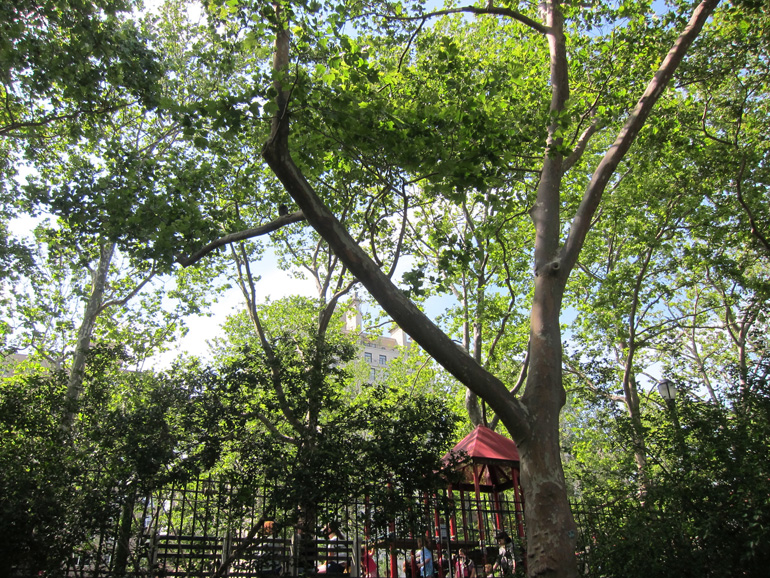Gotham Diary:
Virtual
19 June 2012
Over the weekend, I read two very strong passages that collided with high impact. The first comes from early in Gillian Flynn’s, Gone Girl, a novel about a very unfortunate marriage. Nick, the husband, has come home, the previous day, to find his house in disarray and his wife unaccountably absent. By page 72, where the following passage appears, it is clear that Nick is no innocent babe, but then it’s also pretty clear that his wife isn’t, or wasn’t, either.
For several years, I had been bored. Not a whining, restless child’s boredom (although I was not above that) but a dense, blanketing malaise. It seemed to me that there was nothing new to be discovered ever again. Our society was utterly, ruinously derivative (although the word derivative as a criticism is itself derivative). We were the first human beings who would never see anything for the first time. We stare at the wonders of the world, dull-eyed, underwhelmed. Mona Lisa, the Pyramids, the Empire State Building. Jungle animals on attack, ancient icebergs collapsing, volcanoes erupting. I can’t recall a single amazing thing I have seen firsthand that I didn’t immediately reference to a movie or TV show. A fucking commercial. You know the awful singsong of the blasé: Seeeen it. I’ve literally seen it all, and the worst thing, the thing that makes me want to blow my brains out, is: The second experience is always better. The image is crisper, the view is keener, the camera angle and the soundtrack manipulate my emotions in a way reality can’t anymore. I don’t know that we are actually human at this point, those of us who are like most of us, who grew up with TV and movies and now the Internet. If we are betrayed, we know the words to say; when a loved one dies; we know the words to say. If we want to play the stud or the smart-ass or the fool, we know the words to say. We are all working from the same dog-eared script.
This is what I was thinking about, yesterday, when I wrote about the degrading effect of television commercials. It isn’t just advertising, it’s the overwhelming power of modern media generally. I agree with Nick that it’s at least arguable that abuse of the visual cortex has sapped our humanity somewhat. I would go further, to my favorite conundrum, which is that reading, a subversion of vision, has precisely the opposite effect upon the imagination. And Diana Athill would be right there, with her memory of visiting Trinidad & Tobago.
That whole holiday was a joy, not only because it was my introduction to the beauties of tropical seas, shores, and forests, but because I knew the place so well. Of course I had always been aware of how well V S Naipaul and Michael Anthony wrote, but until I had stepped off an aeroplane into the world they were writing about I had not quite understood what good writing can do. There were many moments, walking down a street in Port of Spain, or driving a bumpy road between walls of sugar cane or under coconut palms, when I experienced an uncanny twinger of coming home, which made the whole thing greatly more interesting and moving than even the finest ordinary sightseeing can be.
This reminded me of my walks in Amsterdam last month. As usual when walking, I looked mostly at the pavement. Every now and then, I paused and looked around or ahead. It wasn’t terribly important; like Athill, I wasn’t sightseeing. I can’t point to a specific source of literary inspiration corresponding to Naipaul’s writing about Trinidad, but the atmosphere was clearly charged with the aftermath of words read and savored. I did have a moment that might have seemed to pop out of Nick’s catalogue of disappointments, my “Munt moment,” when I stand on a bridge over the Binnen Amstel and survey the scene that was displayed in a jigsaw puzzle that I worked on years ago. My Amsterdam cliché. I’d have to agree that the puzzle’s image is sharper and clearer, but it leaves out a lot of interesting noise that you have to be there to hear. How did you get there? Where are you headed? Those are just two of countless invisible details of the actual view.
Reading makes us think that we’re seeing things that aren’t there, but that’s not what’s happening. We’re not seeing anything; we’re assembling bits and pieces of images from our memory banks in an attempt to make sense of the words. And when we’ve made sense of the words, we’ve created new memories, thatched out of the words and what old memories they’ve prompted. It feels effortless to the experienced reader, but it is brain work all the same. It’s because of that work that the “real thing,” when we finally encounter it, will seem all the richer for the preparation. For writing tells us something that raw images never can: what it is like to live in a place. Images tend, if anything, to pre-empt that experience. All experience.
So I would say to the Nick Dunne’s of the world: turn off the TV and stop watching clips on the Internet. Cut back, anyway. And give reading a try. Reading about the Mona Lisa or the Pyramids will probably restore some of the freshness. Put your eyes to a better use.
Just two weeks ago, within the space of five days, I sat in a taxi that turned from Houston Street onto the Bowery. In the late afternoon light, the Empire State Building rose up in all of its simple but solid elegance, almost too good to be true, in the windshield. It wasn’t as if I’d never seen it before; it was that I was seeing it now.
***
Â

